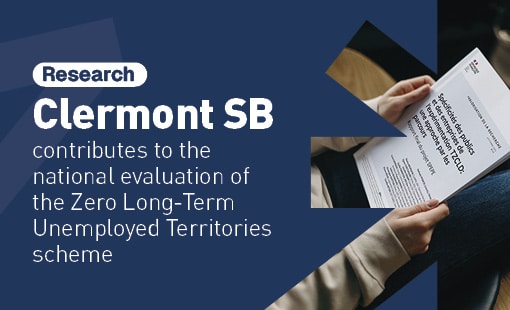The four key action areas of the barometer:
- Continue awareness-raising initiatives
- Make related training mandatory
- Integrate reflection on the role of social media
- Incorporate students’ new aspirations


Belief in strict equality of skills between women and men among students in France’s top schools has slightly decreased, from 82% in 2021 to 79% in 2025. This step backward confirms a concerning trend, showing the resurgence of gender stereotypes among the younger generation. Men remain associated with self-confidence (52.7%), stress management (40.2%), and authority (37.7%), while women are still linked to empathy (76.5%), listening (68.9%), and sensitivity (68.6%). Paradoxically, most young people claim to be egalitarian but continue to attribute fixed qualities to men and women. This contradiction perpetuates inequality and helps reproduce it as they enter the job market.
The barometer highlights a mechanism in which female students internalize stereotypes more strongly than their male peers. On average, women attribute 4.1 stereotypes to themselves, compared to 2.9 for men. At the same time, male students project even more stereotypes onto them (3.2 on average), far more than the reverse (1.8). This “double bind” traps young women in a cycle of self-censorship and self-doubt, partly explaining why, despite equal competence, they hesitate more to envision themselves in managerial or leadership roles.
Although 78.6% of students describe themselves as ambitious, nearly one-third are unable to name a public figure they look up to. Many prefer to highlight people in their personal circles or modest, low-profile figures, far from imposed role models. When well-known personalities are mentioned, men most often cite Elon Musk or Napoleon, while women cite Simone Veil or Marie Curie. These choices, though limited, reveal two contrasting visions of ambition: one based on individual success and visibility, the other rooted in collective commitment, justice, or scientific progress. More telling than the specific names is the lack of shared models. Traditional hierarchical ambition is losing its appeal among a generation seeking new reference points.
When asked about the main sources perpetuating stereotypes, students point to society (79.9%), social media (63.5%), and traditional media (57.3%). Conversely, higher education institutions are perceived as relatively protected environments. This perception is a positive signal: business schools are seen as spaces capable of challenging biases and proposing alternative models of success. By intensifying training and awareness initiatives, they can play a key role in preparing a generation able to combine ambition and equality.

This new study highlights the ambivalence of a generation shaped by traditional gender stereotypes, yet simultaneously rejecting conventional notions of ambition and aspiring to new models,” explain Tanguy Bizien, Head of Research at AFMD, and Pascale Borel, Professor of Marketing at Clermont School of Business and co-author of the study.




Stay updated with the latest news from Clermont School of Business by subscribing to our newsletter!
Vous recevrez dorénavant notre newsletter mensuelle.
@bientôt
We faced problems while connecting to the server or receiving data from the server. Please wait for a few seconds and try again.
If the problem persists, then check your internet connectivity. If all other sites open fine, then please contact the administrator of this website with the following information.
TextStatus: undefined
HTTP Error: undefined
Some error has occured.